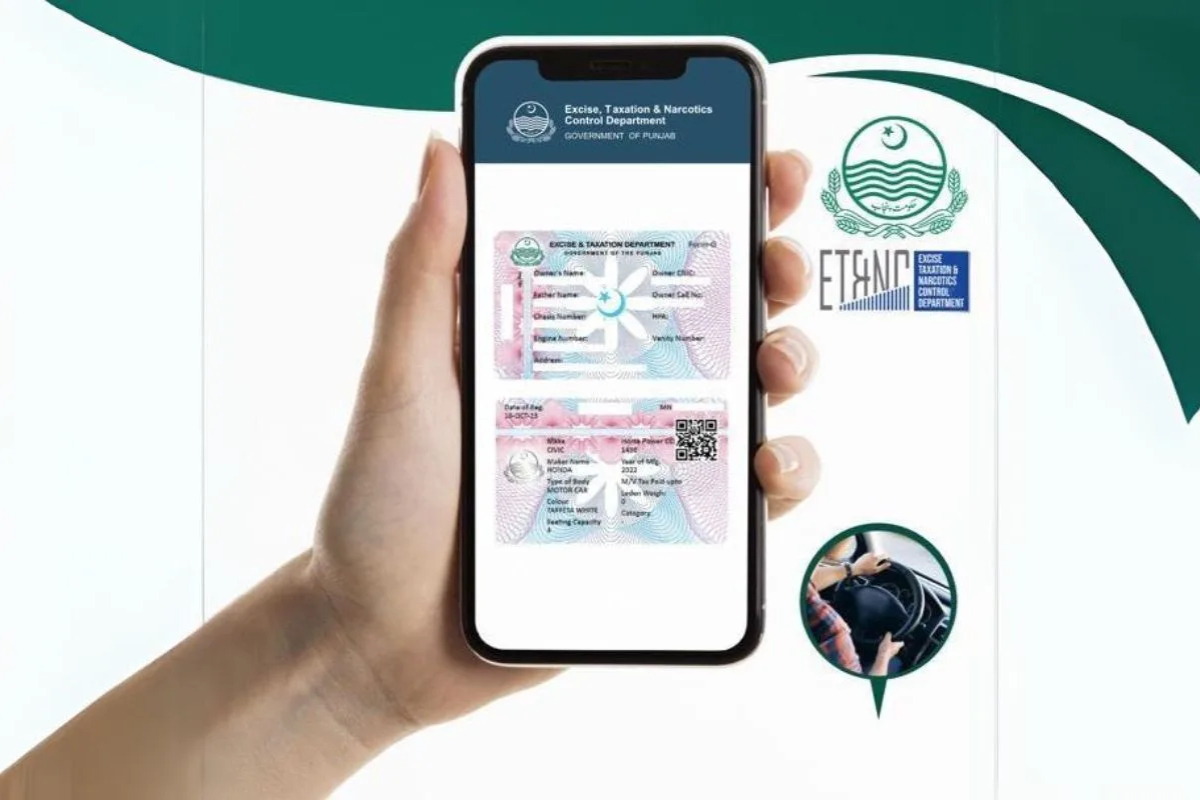In a major step towards going digital, the Punjab Excise, Taxation, and Narcotics Department have launched a virtual registration card for vehicles, addressing a common issue faced by new vehicle owners in the province.
The lack of physical registration cards has previously resulted in fines from traffic police, causing additional problems for owners.
As shared in a recent social media post by the department, people who have registered their vehicles but haven’t received the physical cards can now get a digital version through the department’s website. The process involves visiting a specific link and entering the registration and chassis numbers to generate the virtual card.
Once obtained, vehicle owners can easily download and keep the digital card on their mobile devices, offering a convenient and accessible solution. The department proudly announced the introduction of Punjab’s first e-title document, the E-Registration Card, in a tweet.
— Excise,Taxation & Narcotics Control Department (@ETNCDGOP) January 15, 2024
This move by the Excise department is commendable as it addresses a crucial concern for vehicle owners, protecting them from traffic fines and legal issues. It aligns with the government’s broader push towards digitalization for citizens.
Previously, the government and traffic police had allowed online issuance of learner permits and digital renewal of driving licenses.
[embedpost slug=”punjab-govt-announces-to-distribute-26000-electric-vehicles/”]
The introduction of an e-driving license has further simplified interactions with traffic authorities, allowing individuals to display the document digitally to avoid legal troubles. These digital measures significantly enhance the convenience of citizens, enabling them to obtain essential documents from the comfort of their homes.
Advocates are urging the government to continue implementing such forward-thinking policies for the public’s benefit.



















